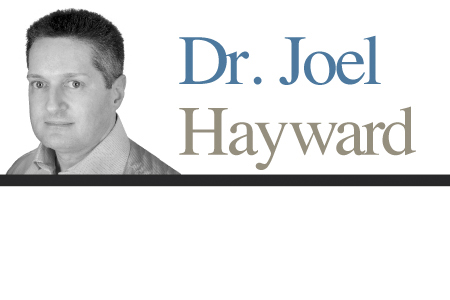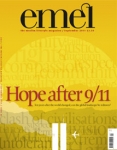
Here's Hoping
Issue 84 September 2011
The scandals linked to NoTW raise questions pertaining to truth, objectivity and bias.
My favourite journalist is Robert Fisk, not because I always agree with him (I don’t), but because I admire the sheer effort he puts into researching his stories, the critical distance he always seeks from the matters at hand, and his reliance on verifi able and legally and ethically attained evidence. He checks his facts and applies sound judgement.
Yet in recent weeks, Fisk has reiterated a view that unsettles me. In essence, he asserts that the international media empire run by Murdoch (whom he describes as “a caliph … almost of the Middle Eastern variety”) has, for many years, advanced a partisan position pertaining to international affairs that is so uncritically positive towards Israel, that its coverage seldom contains objectivity and balance. That is, Fisk believes that at least one international media organisation with excessive infl uence throughout the western world is steering opinion towards Israel.
Fisk is not, of course, the fi rst credible journalist to make such an assertion, although he is among the most respected. Claims have always abounded that the world’s media is manipulated by shadowy press barons who try to steer the wider community to accept their perspectives. Their alleged motive is not to inform, but to infl uence.
I do not know if Fisk is correct but let’s say, for the sake of argument, that he is. What is so wrong with that? Surely it would not matter if particular newspapers or television companies advanced certain positions on any key issues, so long as other papers or channels presented differing views. That would give readers or viewers a range of viewpoints from which they could create their own balanced understanding, wouldn’t it?
Of course, it does not work like this and nor should it. The providers of public information, particularly
those who purport to comply with journalistic codes of ethics and act as society’s conscience,
have a solemn obligation to provide the public with fairness, truthfulness, accuracy, impartiality and public
accountability in every article or story they publish or broadcast.
But what if they don’t? What if Fisk and others are right — that some major media organisations relentlessly present subtly biased coverage of political or social events? Surely this would skew the public’s views and possibly even create untruths of substantial scale. If we return to Fisk’s views about the constant pro-Israel bias of the Murdoch Empire, logically we would be led to believe that, as a consequence, the portrayal of Palestinians, Arabs and possibly even Islam is constantly negative.
I cannot say whether this is correct or not in terms of Murdoch’s own media outlets and I am not suggesting that he or his editors are anti- Arab or anti-Islamic. I also have no problem with positive coverage of Israel when it is warranted, just as I have no issue with positive coverage of Palestinian news when it is merited. Yet I confess to observing that many British and other western newspapers and television broadcast companies — not just Murdoch-related ones — present both international and national Muslim issues negatively, with disturbing frequency.
I am not a conspiracy theorist and rather than attributing this observation to the infl uence of any malevolent individuals or groups, I tend to attribute the apparent bias and absence of balance mainly to the legacy of Orientalism and a widespread lack of knowledge about Islam. As a convert from Christianity, I remember my own ignorance of Islam during earlier stages of my life.
I, nonetheless, like to think that had I been a journalist before I embraced Islam, I would have worked hard, dug deep, checked facts and demanded of myself, scrupulous fairness and objectivity. Why, then, does it seem that so many journalists covering Muslim-related stories seem content to settle for simplistic explanations and even hostile reporting? Is it because of hidden conspiracies at the highest echelons of the world’s media, or pressures placed upon journalists at the coal-face to create the raciest and bestselling stories? If we see the recent controversy as indicative of the way that some in the media operate, it is more likely that the second explanation contains most truth. Journalists and editorial staff are under such pressure to present daily scoops that they either don’t have the time and resources necessary to develop adequate expertise and check facts or they sometimes depart from the code of ethics that should guide their every effort.
Dr Joel Hayward is Dean of the Royal Air Force College, and is an author and poet.
These are his personal views only.
Bookmark this |
|
Add to DIGG |
|
Add to del.icio.us |
|
Stumble this |
|
Share on Facebook |
|
Share this |
|
Send to a Friend |
|
Link to this |
|
Printer Friendly |
|
Print in plain text |
|


Comments
0 Comments